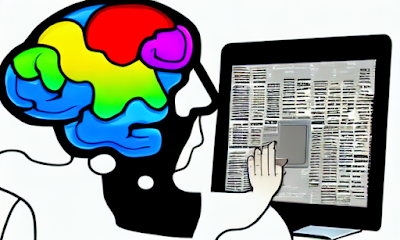Artificial intelligence (AI) has become a popular topic of discussion in recent years, and for good reason. The rapid advancements in technology have led to AI systems becoming more capable of performing tasks that were previously done by humans. This has led to concerns about the potential impact on employment, as AI has started to replace human workers in some jobs.
While AI offers many benefits, there are also concerns about the potential implications of replacing workers with computers. Here are some of the potential implications:
Job Losses
The most significant concern with AI replacing workers is the potential for job losses. As more tasks become automated, there is a risk that many jobs will become obsolete. This could lead to unemployment and a shift in the job market, with fewer opportunities for human workers.
According to a report by the McKinsey Global Institute, up to 800 million jobs worldwide could be displaced by automation by 2030. While this may lead to the creation of new jobs, the shift could be challenging for workers who have been displaced.
Skill Requirements
With the rise of AI, there will be a shift in the skill requirements for many jobs. As computers take on more tasks, workers will need to have a different set of skills to remain relevant. This may require additional training and education, which could be a challenge for some workers.
For example, a study by PwC found that by 2030, up to 30% of jobs in the UK could be at risk of automation. However, the report also noted that while some jobs may become obsolete, new jobs could be created that require skills that are currently in short supply.
Economic Disruption
The shift towards AI may also lead to economic disruption. As more jobs become automated, there may be a decrease in demand for certain products and services. This could lead to a decline in certain industries and an overall shift in the economy.
However, it is important to note that the adoption of AI may also lead to new opportunities and industries. For example, the rise of e-commerce has led to the creation of new jobs in logistics and delivery.
Social Impacts
The rise of AI may also have social impacts. With fewer jobs available, there may be an increase in inequality and social unrest. Additionally, the use of AI to replace workers may lead to a loss of human connection in the workplace, which could have negative impacts on mental health and wellbeing.
However, it is important to note that AI can also be used to improve the workplace environment. For example, AI-powered systems can be used to automate repetitive tasks, allowing workers to focus on more meaningful work.
Conclusion
AI has the potential to revolutionize many industries and improve productivity and efficiency. However, the trend of AI replacing workers raises concerns about job losses, changing skill requirements, economic disruption, and social impacts. As we continue to adopt AI-powered systems, it is essential to consider the potential implications and work to mitigate any negative effects. By doing so, we can ensure that the benefits of AI are maximized while minimizing any potential downsides. Additionally, policymakers and employers must work together to create a future that works for everyone, ensuring that no one is left behind in the AI revolution.









